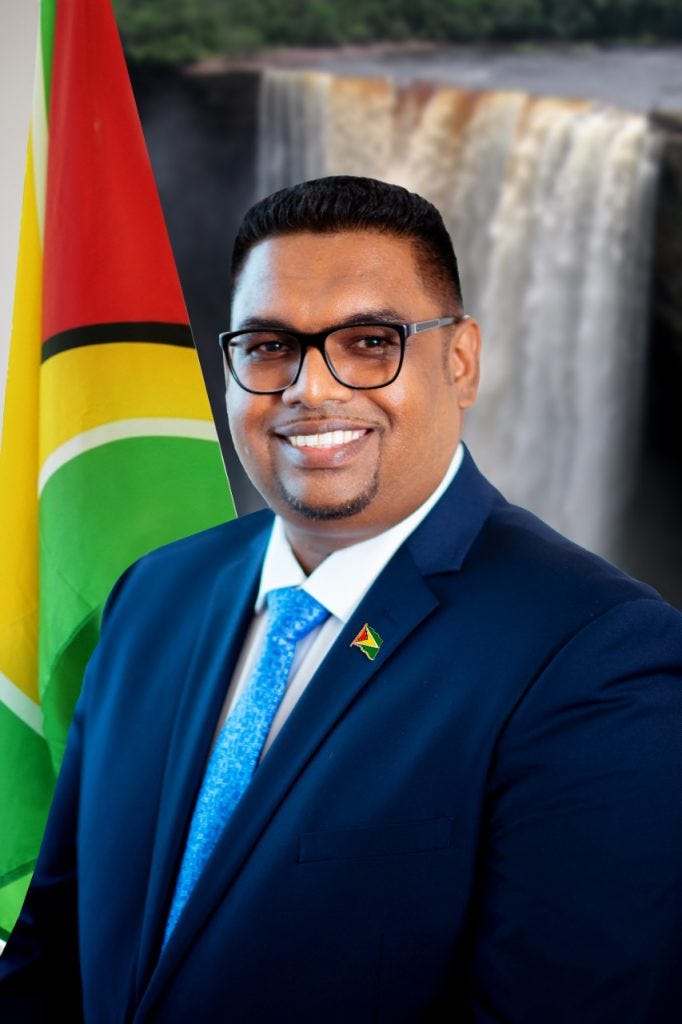Guyana: the epicentre of oil 'arms race'
His Excellency Dr Mohamed Irfaan Ali
President of the Co-operative Republic of Guyana and Commander-in-Chief of the Armed Forces
Guyana, home to only 800,000 people, has become international hot property – and the reason is oil.
When oil giants first arrived in the South American country in 2008, there was "little interest" in its potential as a fossil fuel producer, said the Financial Times. But this drastically changed in 2015 with the discovery of the Stabroek block off the coast of Guyana by a consortium led by the US multinational ExxonMobil.
Guyana's oil boom has made the nation the "world's fastest-growing economy", CNBC reported, and it is "on track for more than 100% growth" in the next five years.
Major oil investment is pouring into the country, which is now "a jewel in ExxonMobil's crown", Alistair Routledge, the company's Guyana president, told the FT.
Overflowing oil has also meant competition. ExxonMobil's rival Chevron recently gained a foothold in the area by acquiring another US operator, Hess. It comes amid what the FT described as a wider "oil arms race" between the industry's major players.
Meanwhile, Guyana has a political "nemesis", said Elias Ferrer Breda for Forbes. In a dispute that "goes back to colonial times", Venezuela has claims to two-thirds of its neighbour's territory and the Stabroek block "lies in the middle of disputed territorial waters".
A final decision from the International Court of Justice on the matter "may be still years away", said Oil Price's Charles Kennedy, compounding the strife between the nations as oil wealth increases.
Tiny Guyana is now infused with "wealth and worries", said The Wall Street Journal (WSJ). The "economic makeover" means new supermarkets are stocked with prime Texas rib-eyes, Exxon billboards plug job opportunities and the national cricket team, sponsored by Exxon, "is getting a new stadium". Some resist, fearful their country is becoming "a subsidiary of Exxon", the newspaper added, while a "series of court cases have sought more oversight of the company".
The country is also racing against a turning tide of international public opinion as cleaner energy is pursued. The International Energy Agency estimates "peaks in global demand for coal, oil and natural gas" will happen before 2030.
Guyana's vice-president Bharrat Jagdeo presses on, having "rebuked pleas" from the UN and other countries that it should be scaling down oil production, the WSJ said. He argues that it is time for small nations like his own to break the production monopoly.
"We need money from the oil and gas sector to climate-proof our country and adapt to climate change," he told the newspaper. "I'm at peace with my philosophy and conscience."
The Week
Rebekah Evans
Newsletter Editor



